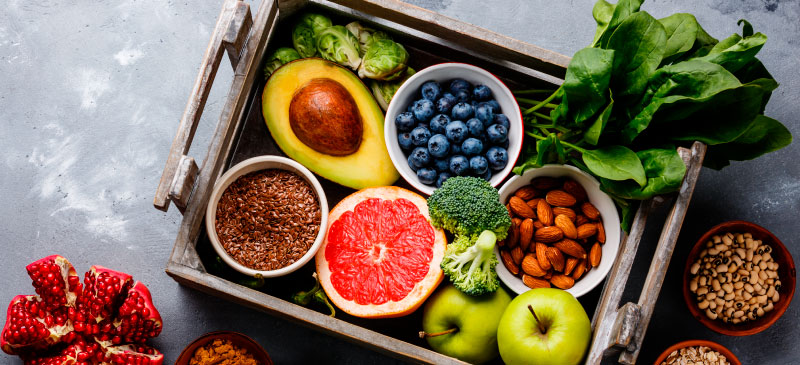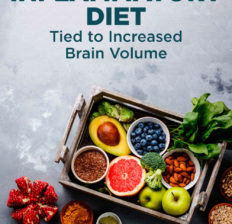This Dr. Axe content is medically reviewed or fact checked to ensure factually accurate information.
With strict editorial sourcing guidelines, we only link to academic research institutions, reputable media sites and, when research is available, medically peer-reviewed studies. Note that the numbers in parentheses (1, 2, etc.) are clickable links to these studies.
The information in our articles is NOT intended to replace a one-on-one relationship with a qualified health care professional and is not intended as medical advice.
This article is based on scientific evidence, written by experts and fact checked by our trained editorial staff. Note that the numbers in parentheses (1, 2, etc.) are clickable links to medically peer-reviewed studies.
Our team includes licensed nutritionists and dietitians, certified health education specialists, as well as certified strength and conditioning specialists, personal trainers and corrective exercise specialists. Our team aims to be not only thorough with its research, but also objective and unbiased.
The information in our articles is NOT intended to replace a one-on-one relationship with a qualified health care professional and is not intended as medical advice.
Anti-Inflammatory Diet Tied to Increased Brain Volume
July 19, 2022

It’s no secret that inflammation is the root of many diseases, but did you know it may actually play a part in brain size as well? It’s true, but that also means consuming an anti-inflammatory diet can help combat chronic disease and potentially even help increase brain size.
In fact, a first-of-its-kind study published in Alzheimer’s & Dementia: The Journal of the Alzheimer’s Association found evidence that an anti-inflammatory diet may be tied to increased brain volume and gray matter.
Study Findings: Diet’s Effect on Brain Matter
Researchers spanning the globe, including those in Texas, Massachusetts, California and China, “investigated cross-sectional associations between the Dietary Inflammatory Index (DII) and measures of brain volume and cerebral small vessel disease among participants of the Framingham Heart Study Offspring cohort.”
Specifically, they looked at the 1,897 participants, with a mean age of 62, who completed food frequency questionnaires and MRIs.
What they found was that those who consumed more pro-inflammatory foods — and thus had higher DII scores — appeared to have smaller total brain volume “after adjustment for demographic, clinical, and lifestyle covariates.”
That’s not all. According to the researchers, “In addition, higher DII scores were associated with smaller total gray matter volume … and larger lateral ventricular volume.”
Essentially, consuming more foods that cause inflammation was associated with smaller brain volume and gray matter in the brain. Conversely, it’s believed that consuming an anti-inflammatory is tied to increase brain volume and gray matter.
The study authors did note: “As we are one of the first groups to report on the associations between higher DII scores and brain volume, replication is needed to confirm our findings.”
What It Means
This study provides evidence that a pro-inflammatory diet not only increases the risk for several physical diseases, but it also can negatively impact aging of the brain. As such, you should avoid eating inflammatory foods as much as possible, including:
- fried food
- processed meat and other processed foods
- alcohol
- refined carbohydrates
- artificial sweeteners
- vegetable oils
- high-fructose corn syrup
On the flip side, an anti-inflammatory diet can support brain health and healthy brain aging. That’s why you should consumer more anti-inflammatory foods, anti-inflammatory drinks and anti-inflammatory herbs, such as:
- omega-3 foods
- leafy green vegetables
- bok choy
- celery
- beets
- broccoli
- blueberries
- pineapple
- salmon
- bone broth
- walnuts
- coconut oil
- chia seeds
- flaxseeds
- turmeric
- ginger
- ashwagandha
- astragalus root
- calendula
- cat’s claw
- chamomile
- cilantro
- echinacea
- fenugreek
- holy basil
- kava root
- lemon balm
- licorice root
- oregano
- parsley
- passion flower
- rhodiola
- rosemary
- sage
- spearmint
- St. John’s wort
- green juices
- fruit and vegetable smoothies
- coffee
- tea
- apple cider vinegar
Other Ways to Support Brain Health
There are many ways beyond eating an anti-inflammatory diet to support brain health. For instance, there are actually things that can help increase your brain size, such as:
- Yoga
- Juggling
- Meditation
- Learning to play an instrument
- Being intimate with your partner
- Cardio and other forms of exercise
- Intermittent fasting
You can also consume more brain foods, such as avocado, dark chocolate and eggs, or take nootropics, including:
- Medicinal mushrooms
- Adaptogen herbs
- Bacopa monnieri
- Fish oil
- Ginseng
- Gingko biloba
Some other tips to keep your brain sharp and ways to improve memory include:
- Keep learning new things
- Get enough sleep
- Prioritize relationships to prevent loneliness
- Read
Conclusion
- A cross-sectional investigation examining brain volume and the Dietary Inflammatory Index found that a pro-inflammatory diet was associated with smaller brain volume and less gray matter.
- Researchers used data from the Framingham Heart Study Offspring cohort to perform the study.
- As such, an anti-inflammatory diet is tied to increased brain volume and brain matter, though the study authors warn that “replication is needed to confirm our findings.”
- Still, avoiding pro-inflammatory foods and consuming more anti-inflammatory foods benefits overall health in innumerable ways, including supporting brain health.
- In addition to eating an anti-inflammatory diet, other ways to support brain health include exercising, yoga, meditation, intermittent fasting, reading, prioritizing relationships, getting enough sleep, learning new things and more.



